It was a tough day (wink wink) being a TPG reporter Tuesday when leaders from Marriott International welcomed me and a few colleagues aboard Evrima, the first vessel to hit the seas under The Ritz-Carlton Yacht Collection brand.
It was also my first time on any cruise ship — yes, really. They hired me to write about hotels, after all!
However, I certainly might be the kind of person who keeps this new enterprise from Marriott International afloat (well, if I could afford to shell out a hefty penny for one of these trips).
While you can find rates as low as $5,000 per person for some excursions, View Suites on an upcoming Evrima voyage from Barcelona to Rome start at $52,100 per person based on double occupancy.
That’s one significant tab, even for luxury hotel travelers. The target audience is consumers who don’t blink an eye about rates like those at the Aman in New York City, which can exceed $3,000 a night.
It’s increasingly important that hotel companies such as Marriott have something to offer their customers across various travel sectors. Marriott already does this with a number of land-based luxury hotels — the sky and sea are the limits for what might be next.
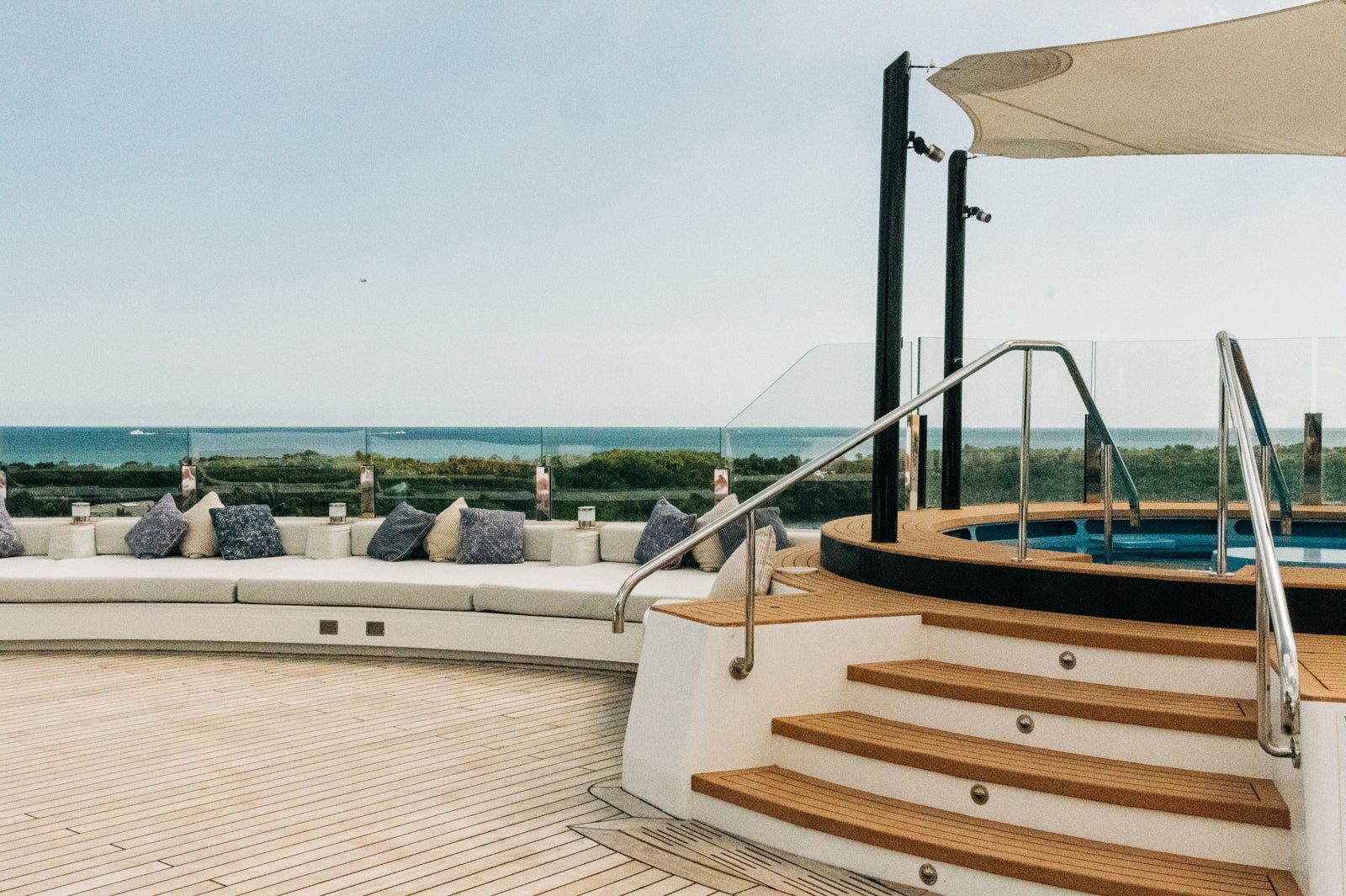
“I think we’ll look at anything that helps us achieve our objectives of ensuring our customers don’t need to look outside our ecosystem for what they seek for virtually any trip purpose anywhere in the world,” Marriott CEO Anthony Capuano told me during a lunch with reporters aboard Evrima this week while it was docked in Fort Lauderdale.
I felt relaxed walking aboard Evrima. It felt less like my preconceived notion of a sprawling cruise ship with a massive reception area. Instead, it was more like stepping through a chic side entrance of a glamorous hotel or resort.
Admittedly, we were there during a quieter turnaround space before passengers arrived. Still, when passengers did begin to trickle in later in the day, it appeared to be more of a calm arrival with Champagne and smiles.
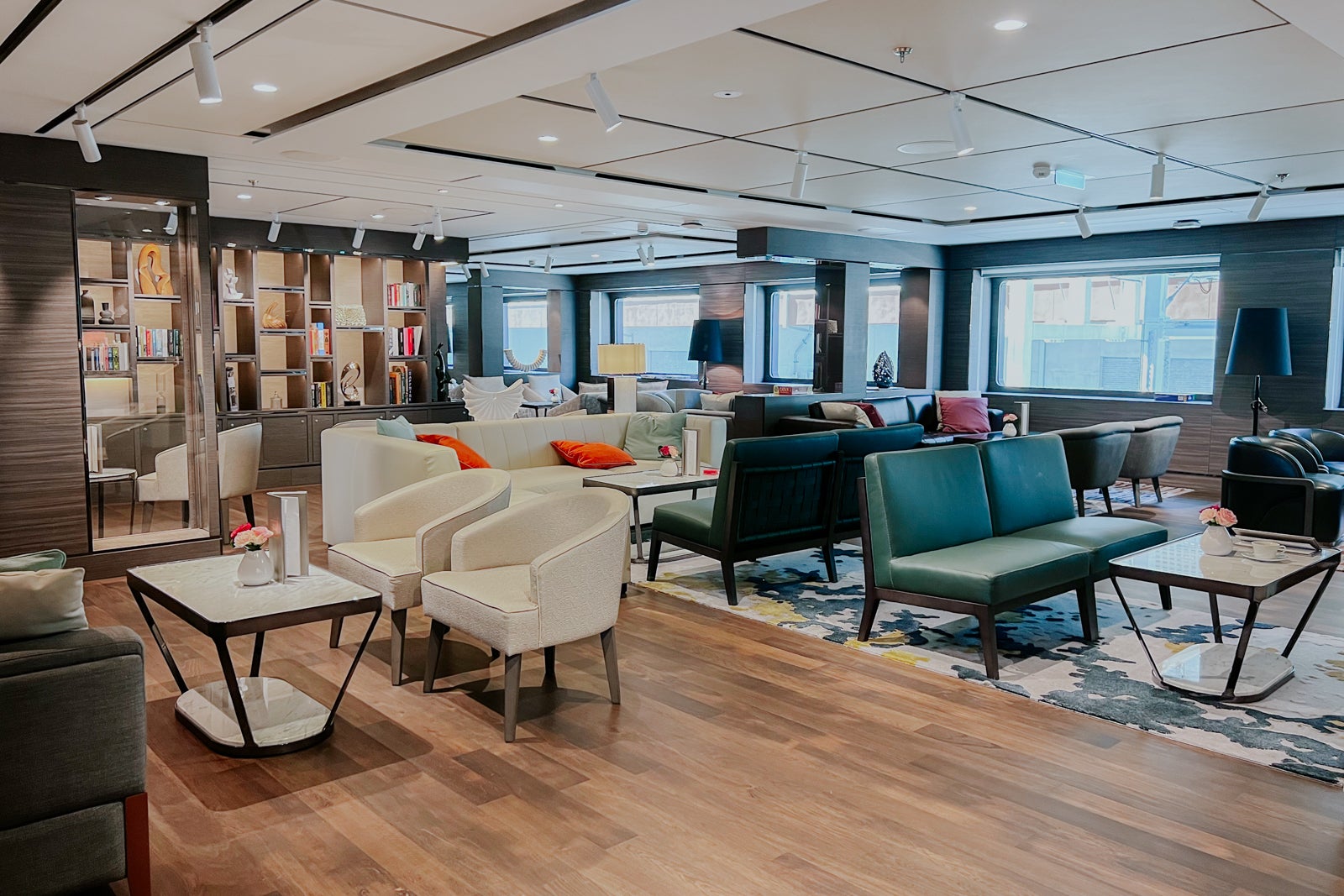
Bonvoy fuels the sea-faring ‘Bon voyage!’
Capuano and Douglas Prothero, the founder and CEO of The Ritz-Carlton Yacht Collection, noted 75% of passengers that made a reservation aboard Evrima had never been on a cruise before. Also, 70% are members of the Marriott Bonvoy loyalty program, they added.
As someone who knows a thing or two about luxury hotels, I walked away thinking there’s a reason this ship, er, yacht, is attracting so many non-cruise folks. The glitterati isn’t doing a full buyout of Evrima because they want to experience a buffet line.
“Because of the brand, [the passengers] knows they can expect the quality of the property, the quality of the service and the quality of [food and beverage],” Prothero said. “That’s why they’re coming, because they trust [The Ritz-Carlton brand].”
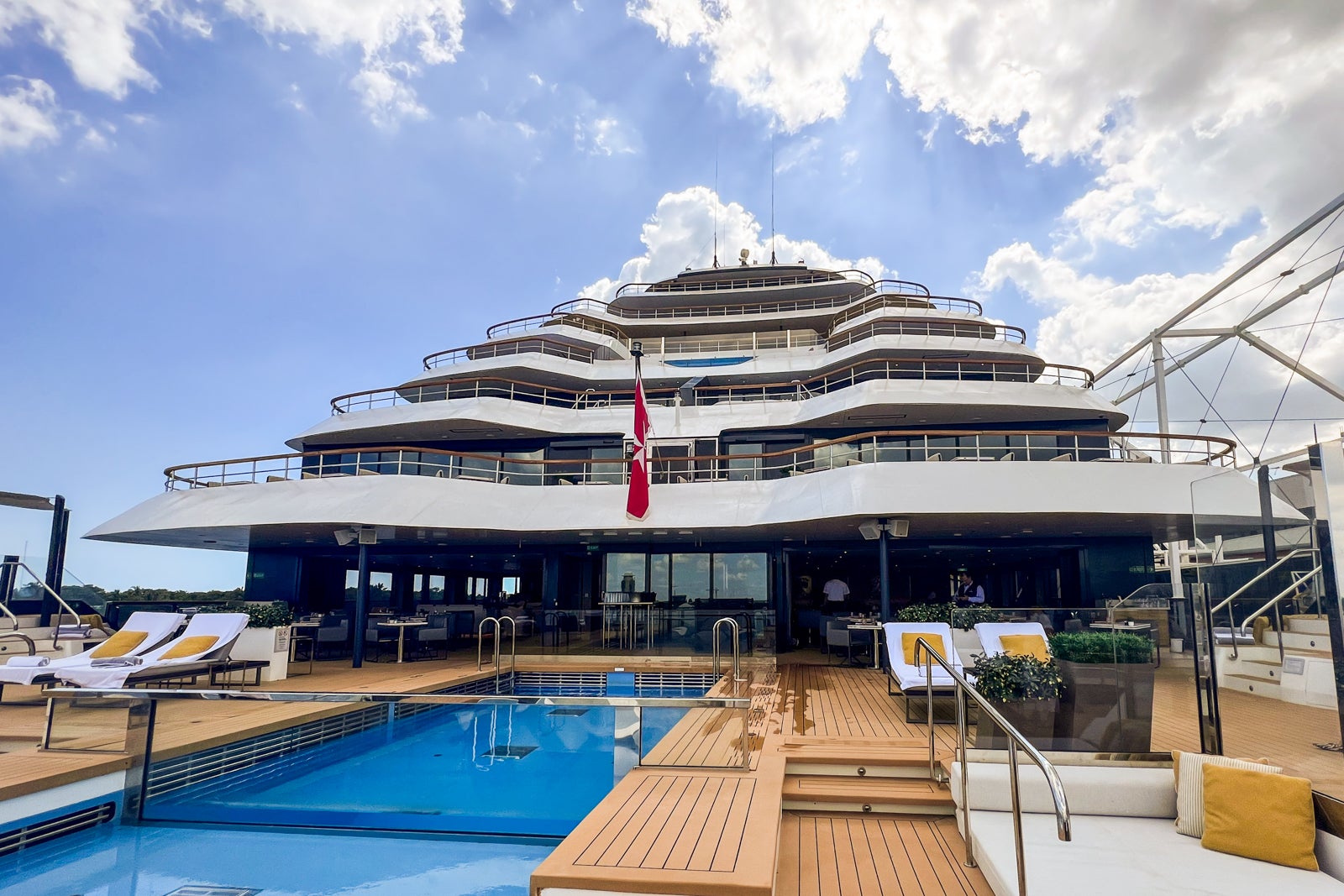
Marriott Bonvoy has more than 177 million members. Not all of those are ultra-luxury travelers, but winning over just a small fraction of that will keep The Ritz-Carlton Yacht Collection afloat for years to come. Evrima holds 298 passengers, and the next yacht in the works, Ilma, is slated to hold 456 passengers.
Intimacy is the name of the game when a hotel company comes to swim in the sea.
The CEO of Accor made a recent announcement about Orient Express launching its own line of superyachts; the announcement even included a light jab at Evrima by noting the Paris-based company’s yacht will be longer, hold half as many passengers and be twice as expensive.
From atrium hotels to seclusion at sea
These days, the luxury hotel crowd increasingly favors seclusion, intimate settings and curated experiences.
Atrium hotels aren’t the must-have design trend as they were in the 1970s and 1980s. Instead, the luxury and lifestyle hotel trend gripping the industry now is all about breaking up expansive lobbies into more individualized spaces.
This was the vibe across much of Evrima. The ship was full of bookcase-lined cocktail lounges and entertainment spaces, as well as a cozy humidor for enjoying a hand-rolled cigar, cognac or a bottle of wine that might rival the cost of a suite. The Ritz-Carlton Spa on board was similarly outfitted; it offered spaces surprisingly roomy for a cruise ship but intimate enough for a relaxing day of self-care.
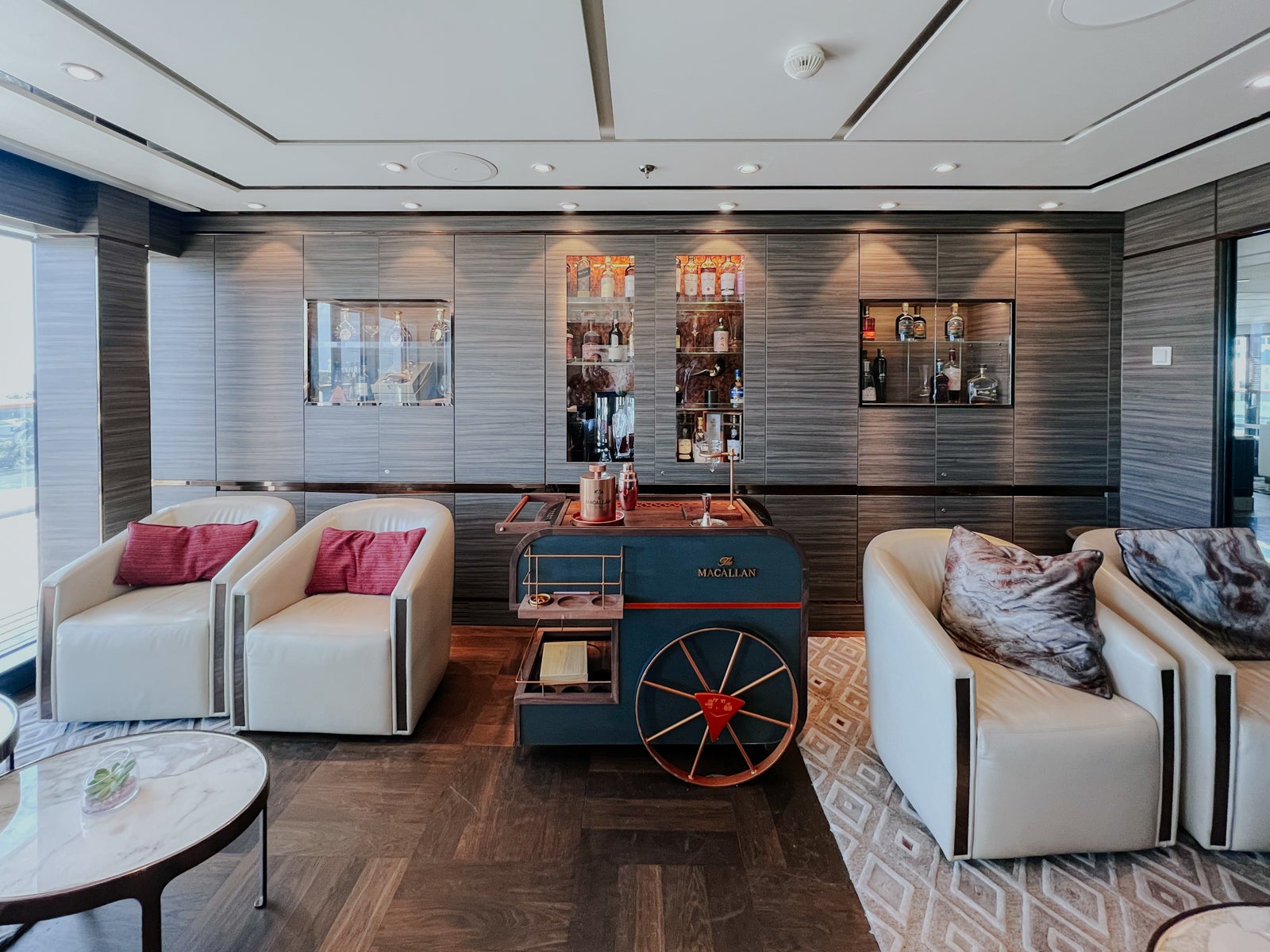
“We all hope we have a friend with a yacht — maybe we all hope we have one with a yacht this large, but it feels like a yacht much more than a cruise ship,” Capuano said.
The Marriott and The Ritz-Carlton Yacht Collection team members aboard Evrima this week frequently pointed out that the design resembled what you’d find in a Ritz-Carlton hotel. There’s even an art concierge aboard who can arrange gallery visits for passengers to meet local artists or make purchases when the ship makes stops during a voyage.
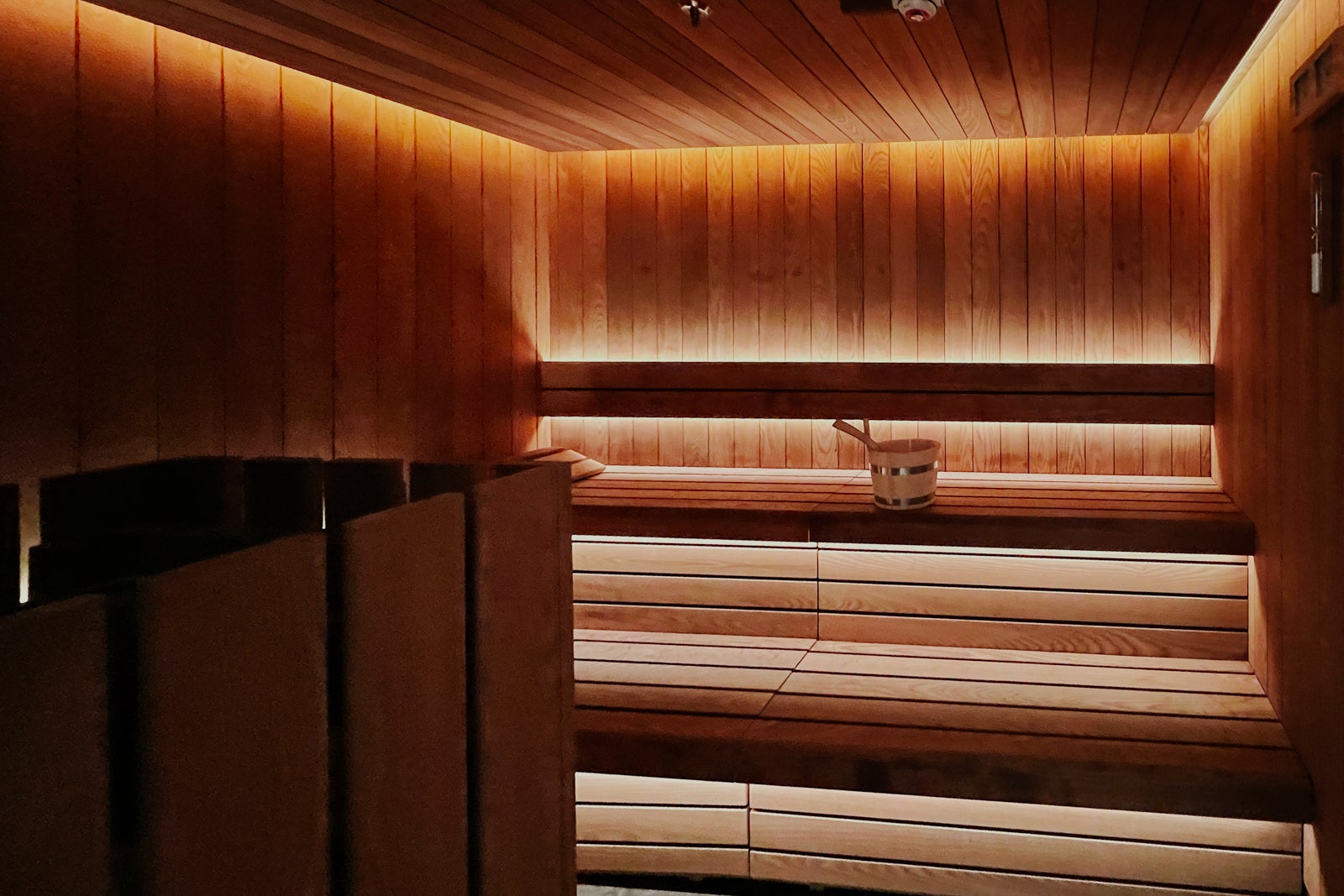




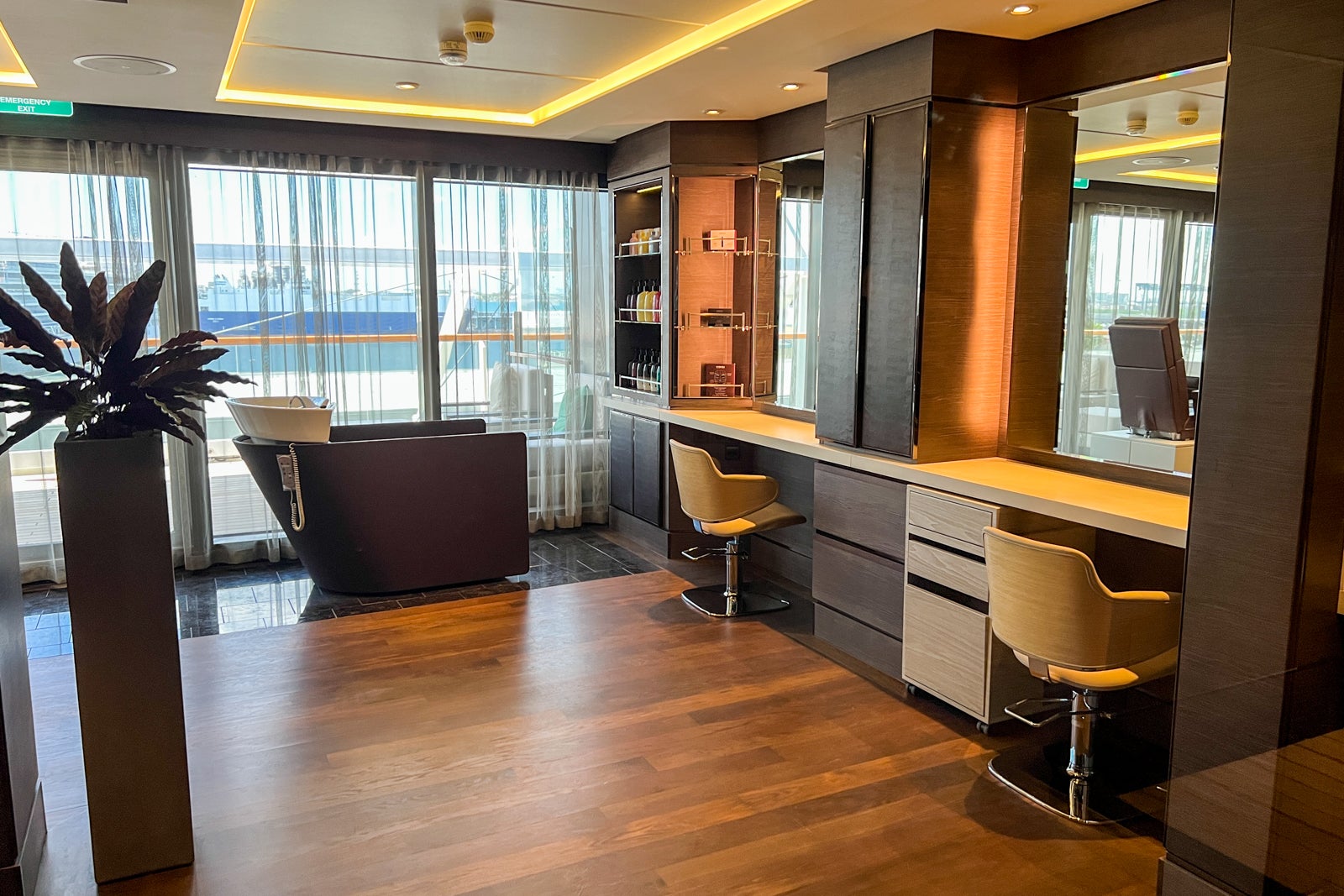

While there were some larger dining areas, they weren’t cavernous restaurants. Instead, everything felt more like high-end offerings you’d expect in a tony area of a major city.
There were more intimate dining options, like S.E.A. — an offshoot of chef Sven Elverfeld’s Aqua, the Michelin three-starred restaurant at Germany’s The Ritz-Carlton, Wolfsburg. Even the indoor-outdoor Pool House restaurant felt more like a high-end hotel (thanks to its leather-accented couches and 10-seat bar) than a seafaring space you’d pass through en route to catch some sun.
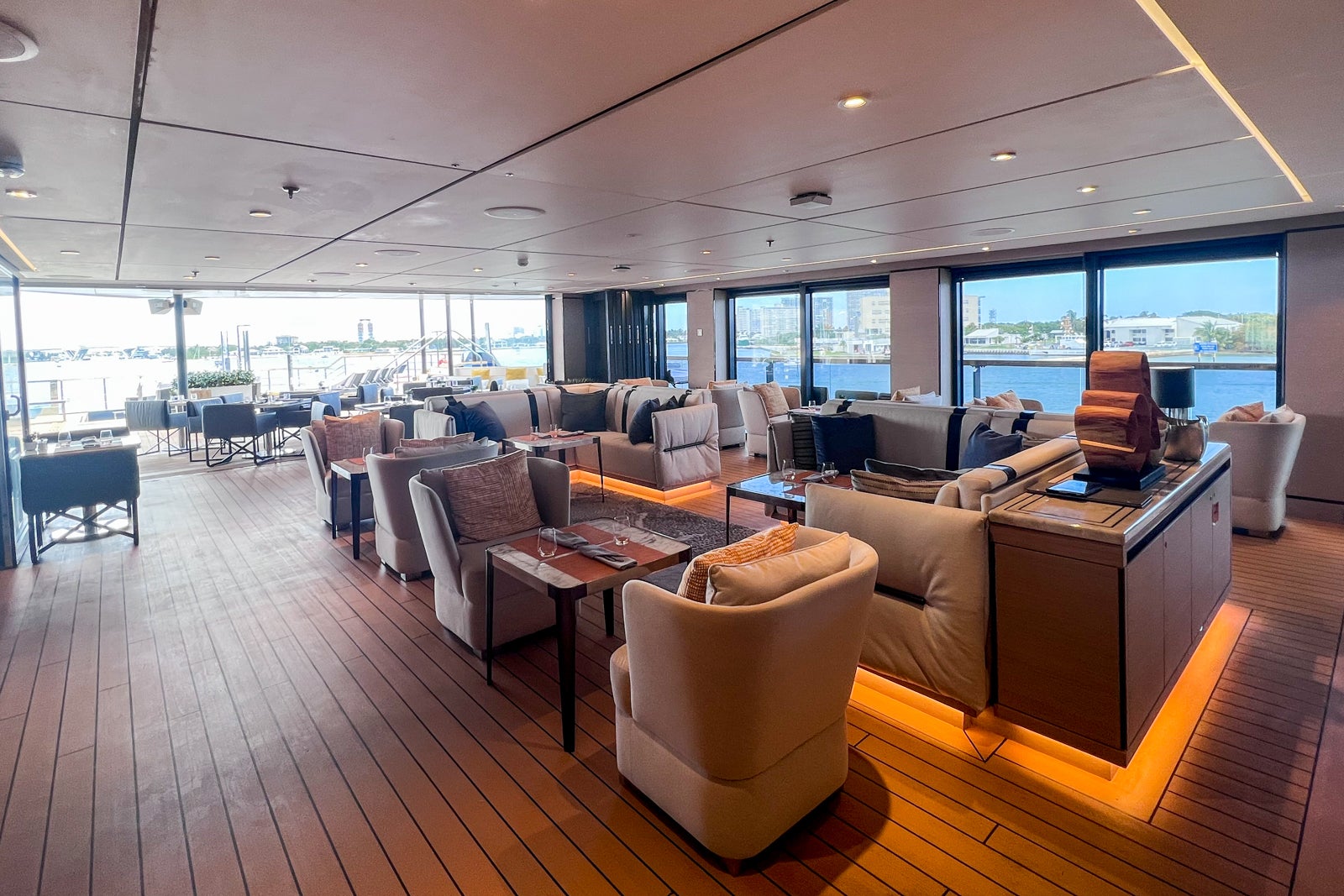
Suites similarly appeared to target travelers looking for a more curated experience rather than just exploring activities en masse with their fellow passengers.
I expect that on many cruise ships, travelers want to spend more time away from the cabin or suite than inside it. I would be more than happy, however (in fact, I might now be travel-lusting) to spend the day reading, writing and luxuriating in an Evrima suite.
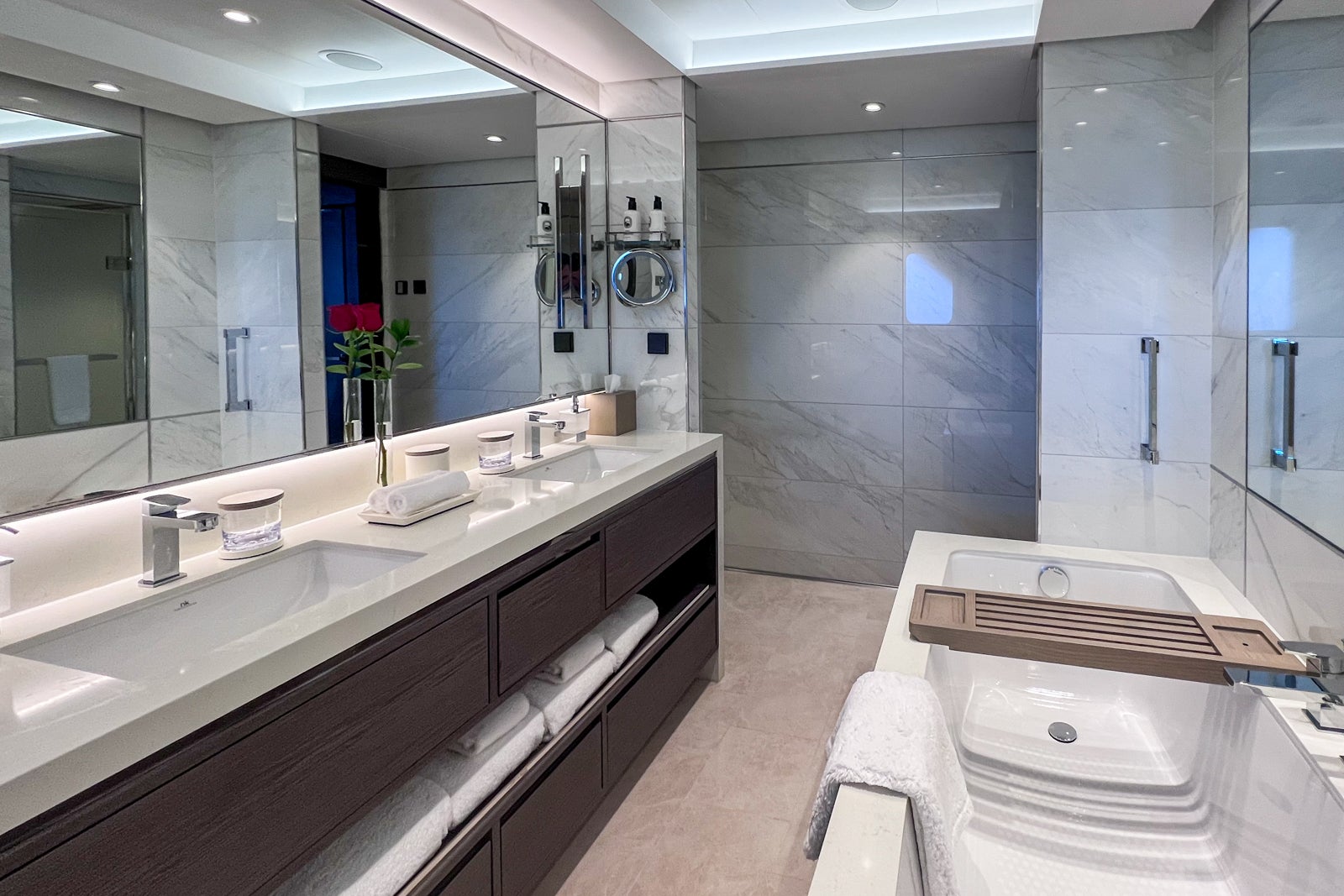
The spacious en-suite bathrooms with soaking tubs and the spacious workstation in front of the window in the Loft Suite’s downstairs bedroom really sold me.
The travel lust may also have had to do with the fact that we were touring suites during turnover: An Evrima staffer was dropping by with a bottle of Champagne to place in each room, and other staffers were polishing the grand pianos.
While I didn’t experience Evrima at sea, it appears to be winning over the hotel crowd.
“We’ve had people who’ve come for a week and stayed for a month, and we’ve had a bunch of that — not just a few,” Prothero said.
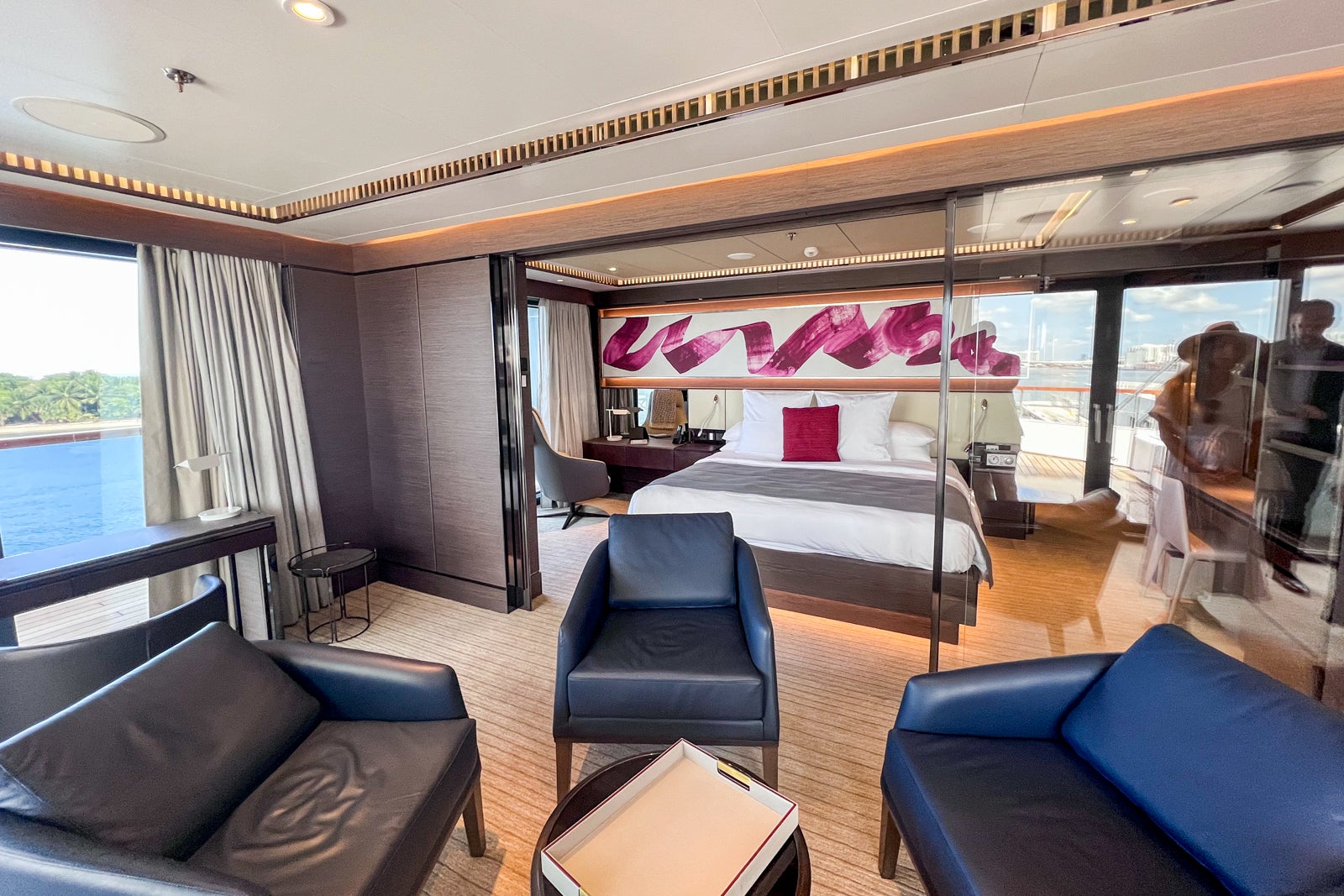
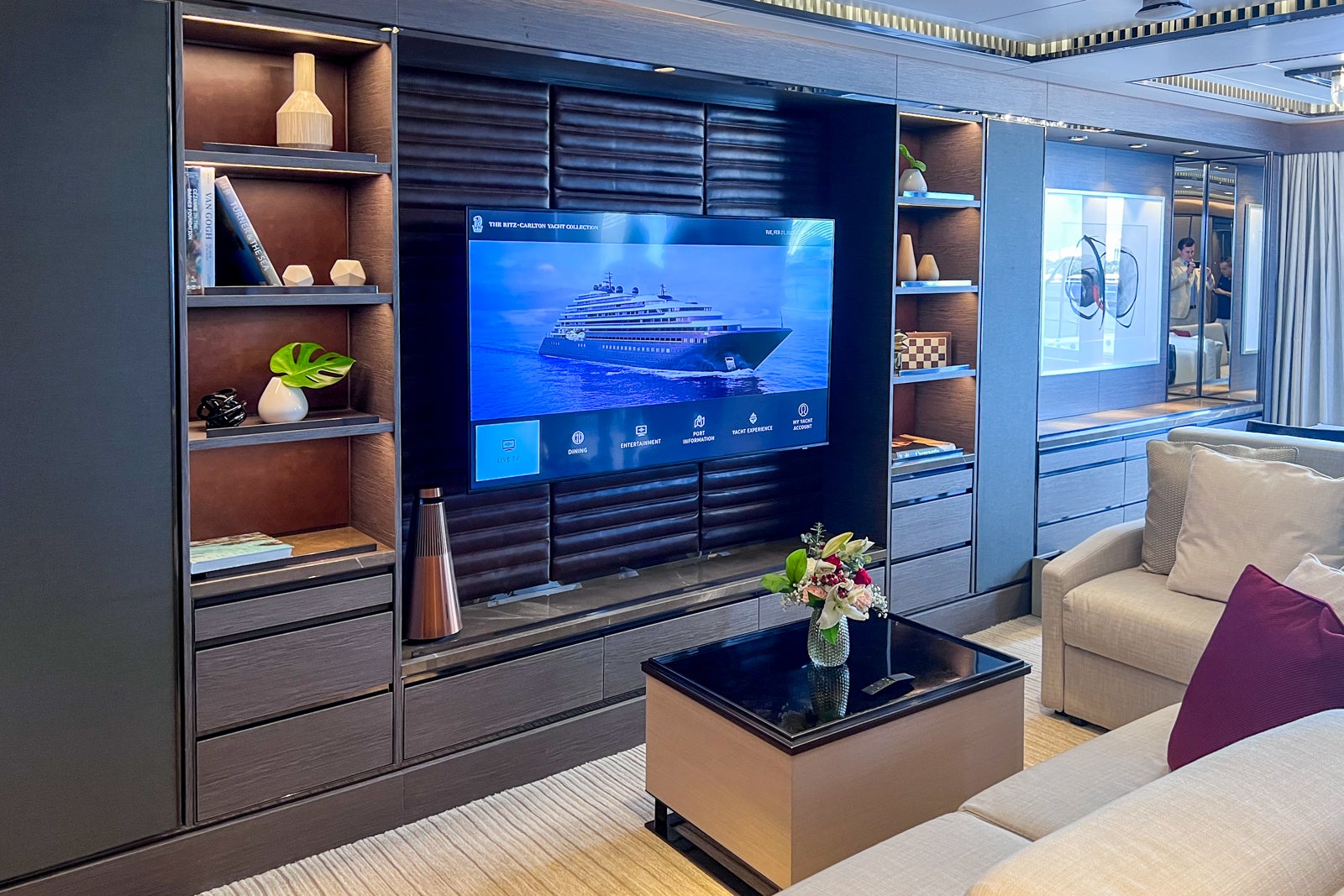
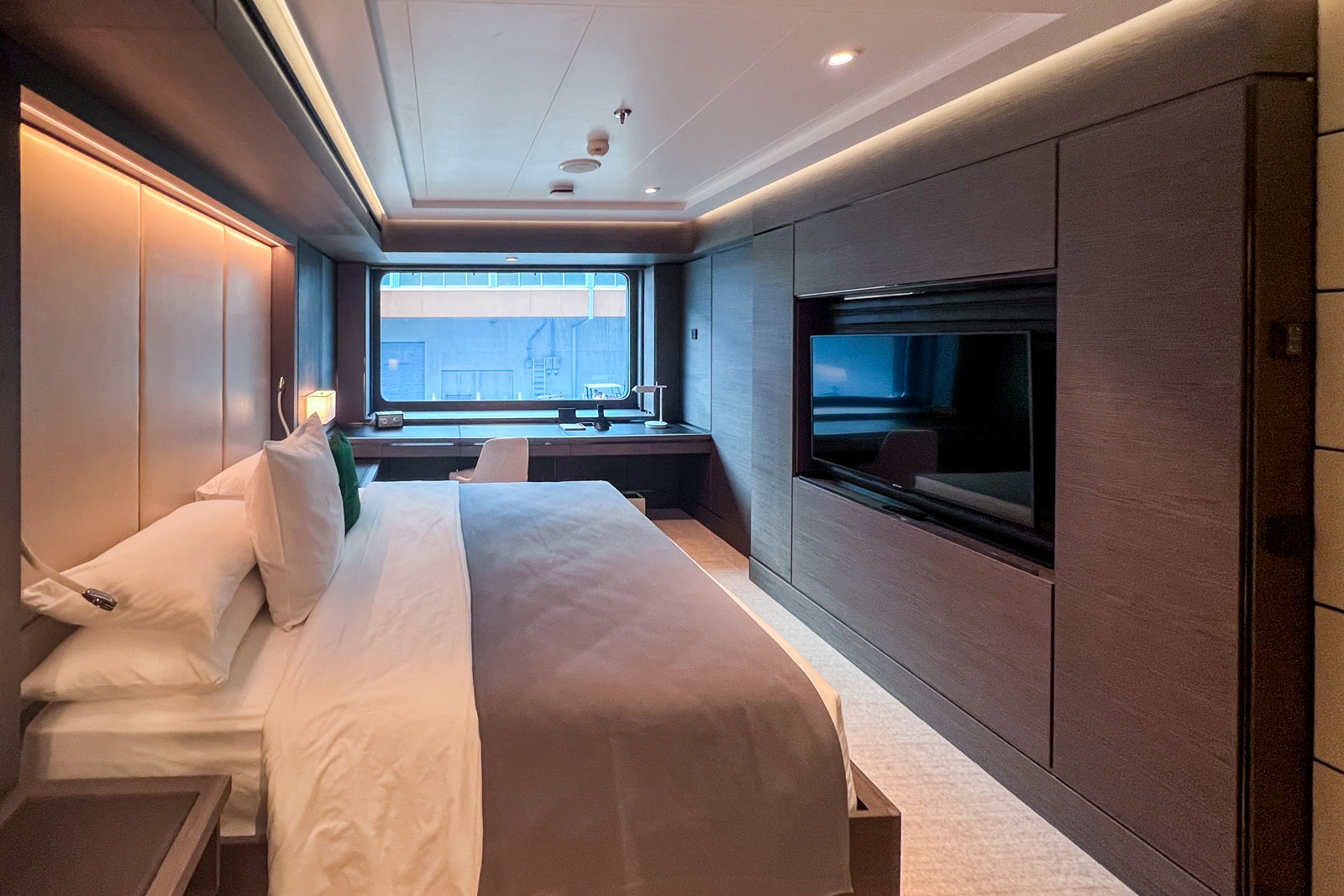
Marriott’s other option for the cruise crowd
It’s not just the luxury cruising sector that Marriott is courting these days. The company’s strategy expands to land-based offerings when it comes to attracting another kind of cruise traveler.
The company’s — and its competitors’ — recent ascent in the all-inclusive resort sector is likely taking a bite out of the cruise business. All-inclusive resorts bundle costs into a single nightly rate, and guests don’t have to worry about hidden fees or soaring bills during a stay. A similar pricing strategy is what draws many travelers to the cruise sector.
While Marriott hasn’t done a specific analysis here, Capuano sees similarities between the two travel options.
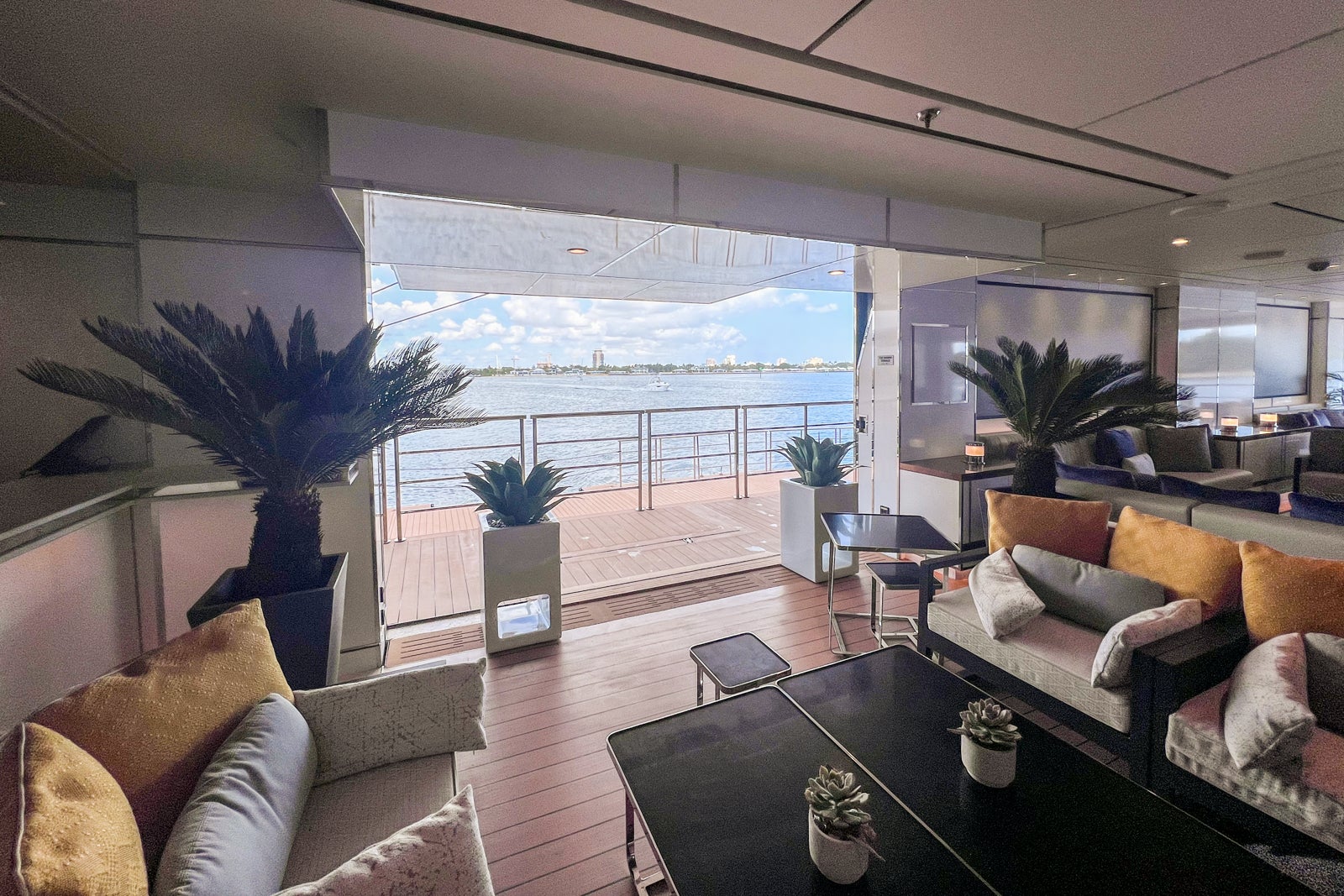
“When we look at macro-consumer trends and travel trends, the simplicity [and] the lack of surprises in an all-inclusive pricing strategy is increasingly compelling, which is why we’re seeing that all-inclusive portfolio grow exponentially,” he added. “And I think this is a natural extension: It’s that same predictability [as a cruise].”
Keep in mind there are a few elements of Evrima that cost extra on top of your base fare: Meals at S.E.A. restaurant and bottles found on the reserve wine list are on an a la carte pricing model.
“We have people spending far more than they paid for the cruise on wine — every voyage,” Prothero said.
The future of pricing power
Voyages on Evrima aren’t cheap, but neither are hotel rates on land these days.
Hotels were a leading cause of inflation into the summer of last year. While things have cooled off, there has been chatter among industry analysts that it provided the luxury sector with long-needed price differentiation above more affordable sister brands.
The thinking went that a room at a St. Regis or a Ritz-Carlton should go for several hundred more dollars a night than a Westin or a Marriott. Hotel owners maintaining higher rates through the pandemic helped achieve that goal.
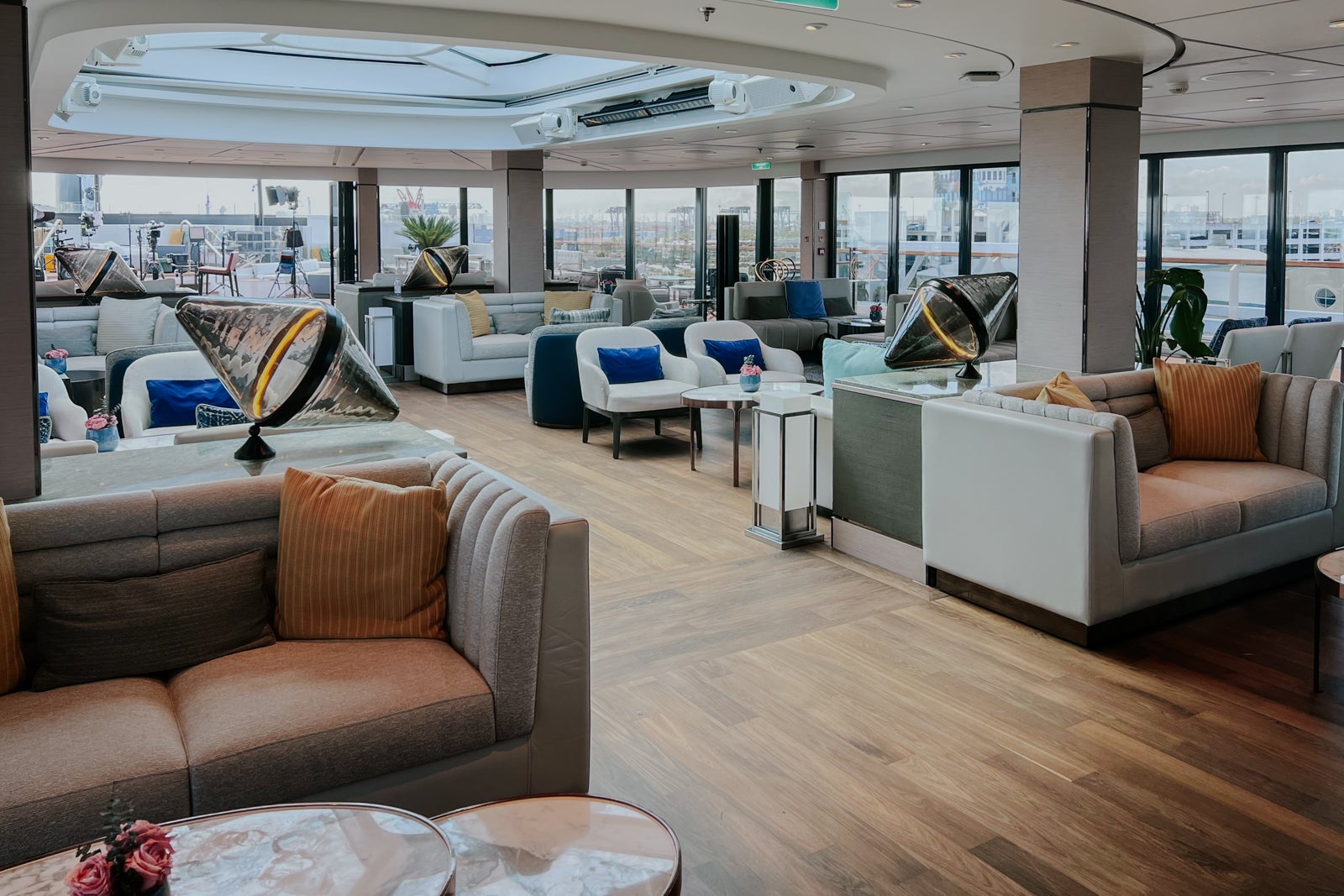
Long story short: The luxury crowd can handle these prices on land or at sea, so don’t expect them to decrease anytime soon.
“No guest ever in the history of travel likes to pay a higher rate, but I think particularly as you move up in the quality tiers, there is a pretty good appreciation for supply-demand dynamics,” Capuano said.

